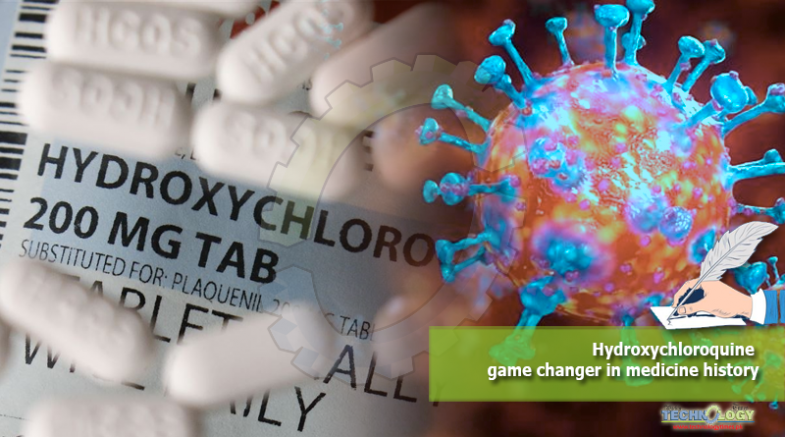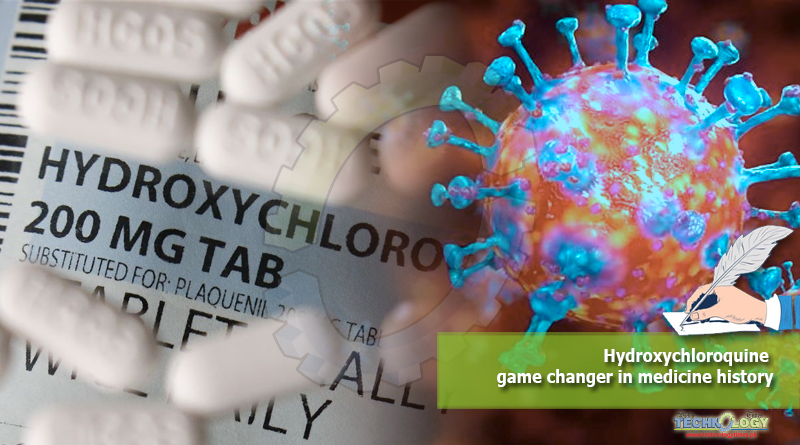Hydroxychloroquine has a real chance to be one of the biggest game-changer in the history of medicine. The US claimed it and afterward, the United States FDA issued an emergency use authorization for these decades-old malaria drugs

Chloroquine and hydroxychloroquine have been used for a very long time to treat malaria and autoimmune diseases such as lupus or rheumatoid arthritis in the world. Their adverse effects are well known and can be severe, from psychiatric effects to arrhythmia and sudden death. Promoting their use indiscriminately and without any objective evidence is unconscionable, and certainly not medically responsible.
Of course, chloroquine and hydroxychloroquine might well end up being miracle drugs, but until this is proven, considering the generally favorable outcome of the SARS-CoV2 infection, where most patients are asymptomatic or with mild symptoms, and the risks of these drugs, they cannot be recommended.
Social distancing remains the only proven prevention of COVID-19 and its potentially very severe or fatal outcomes.
here’s no high-quality evidence showing the medicines help patients with COVID-19, the disease caused by the coronavirus. The US Food and Drug Administration said Friday these drugs should be used only in clinical trials or at the hospital because of safety risks to patients. The National Institutes of Health has advised caution in prescribing them.
New York Gov. Andrew Cuomo said Thursday night that a review of medical records by researchers at the State University of New York at Albany showed that the drug “didn’t really have much of an effect on the recovery rate.”
The idea of using hydroxychloroquine as a COVID-19 treatment previously took a hit thanks to a study of patients with a severe form of the disease.
That review of 368 people showed no difference in ventilation risk between those receiving hydroxychloroquine alone, people taking it in combination with the antibiotic azithromycin, and patients under just supportive care. That study has yet to be peer-reviewed or published in a medical journal.
Off-label usage (using an approved drug for unapproved indications based on scientific evidence) is the current case for HCQ. In the absence of a definitive cure, testing the curative potential of this treatment merits significance. Regions with large incidents of malaria and anti¬-malarial drug use can thus serve as perfect grounds for herd immunity resistance testing.
Whether one may argue in favor of geographic factors like humidity or exposure, it is fair to say that the discussion on HCQ is contested and inconclusive. The above-mentioned discussion thus warrants attention and serves as a suitable starting point for conducting experimental treatment in countries like Pakistan, to supplement extant clinical trials.
